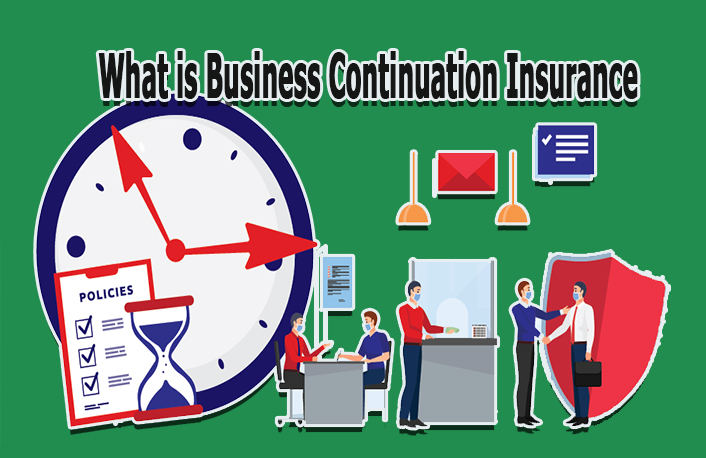An insurance plan is crucial for businesses to ensure continuity in case of an unexpected employee’s unavailability. Business continuation insurance is a risk management method that covers the remaining business employees so they can continue their duties. For instance, a business owner may face challenges in managing unexpected illnesses, disabilities, or the death of an important team member.

However, you will need business continuation insurance to keep your company running. Business continuation insurance covers for losses incurred by a significant member, business owner, or partner who becomes disabled or dies. Furthermore, this coverage offers finances that a business would need to reduce disruption and proceed with their duties as usual.
Types of Business Continuation Insurance
In buy-sell agreements, the main insurance products that are employed as a risk hedge are cross-purchase and entity-purchase policies. The business itself is named as the policy’s beneficiary in the entity-purchase agreement. A cross-purchase policy provides payments to specific business owners and partners, who are all directly benefited by the policy’s terms.
Cross-purchase agreements
Cross-purchase agreements offer business owners comfort by giving them a fixed, clear succession path if a partner leaves the business. The exiting partner won’t have the ability to sell their share to a stranger, or to a relative which might result in operational disruptions for the company. In addition, a buy-sell agreement is a form of agreement whereby one or more surviving partners agree to get the share or ownership stake of the leaving partner.
Contracts can be created to cover any scenario where a partner leaves the company, such as retirement or moving on. If one of the partners passes away or becomes incapacitated, the business continuation policy merely supplies the money to make this feasible.
Entity-purchase agreements
Entity-purchase agreements can be used to establish a defined ownership succession process, similar to cross-purchase agreements. However, an entity-purchase agreement, also known as a redemption agreement is when the business buys the shares held by a partner who passes away, retires, or becomes incapable.
The company owns the insurance policies for each partner used as a financial hedge when business continuation insurance is utilized. Each partner’s share of the company’s value is reflected in these policies. This type of business succession plan and its accompanying insurance are particularly appealing to businesses with multiple partners.
How Business Continuation Insurance Reduces Risk
The death or disability of a significant executive can lead to stress and financial issues. The absence of clear leadership can lead to severe disruptions that could potentially lead to the company’s failure. A business continuation policy, which combines life and disability coverage, helps prevent misunderstandings and conflicts over who will lead operations.
This allows other partners or owners to plan and acquire the impaired executive’s share of the company under a clear succession plan. Business continuation policy can assist companies with multiple owners and partners in maintaining an organized succession plan when paired with explicit buy-sell agreements. This insurance ensures that a single-owner business can be acquired by additional partners or owners.
If not, the ownership might be transferred to the heirs of a prominent executive. Business continuation policy, such as term life or whole life coverage, designates beneficiaries for purchasing the business. Disability policies can serve as a company’s beneficiary, allowing it to purchase equity of its own.
However, other factors can also cause disturbance, such as the death of a business owner. Furthermore, life and disability insurance can help cover losses for essential business members, even if they don’t own a share.
Final Thoughts
Business continuation insurance is crucial for risk management, providing financial support during operational interruptions. It covers lost income, expenses, and additional costs. Selecting a policy requires careful risk assessment, understanding coverage limits, and consulting with an insurance professional.
FAQs
What does the business continuation policy cover?
Business continuation policy provides coverage for lost profits, recurring expenditures, additional expenses, and property damage resulting from disruptions brought on by covered events.
Is it important to get business continuation insurance for small businesses?
Yes, business continuation insurance offers significant advantages to small businesses in terms of offering coverage against financial losses. Additionally, it also preserves operational stability in the event of disruptions.
How does business continuation insurance support in the aftermath of a disaster?
Business continuation insurance can support companies to concentrate on recovery efforts and quickly resume operations by covering more costs, income replacement, and ongoing expenses.
What are the factors to consider when selecting business continuation insurance?
When selecting business continuation insurance, it’s important to consider risks, coverage limitations, policy exclusions, deductibles, business continuity planning, and the reputation of the insurer.

